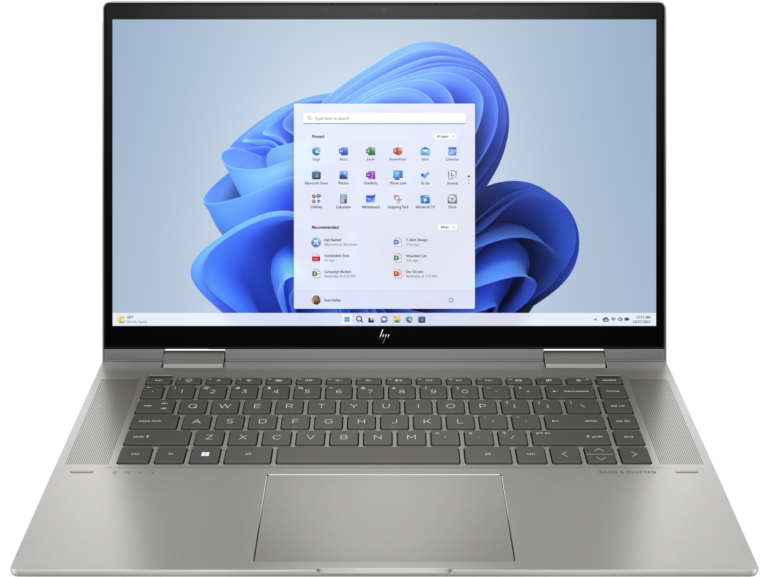From Clicks to Swipes: How Mobile Marketing is Reshaping E-Commerce

Introduction to Mobile Marketing
Mobile marketing refers to the use of mobile devices such as smartphones and tablets to promote products or services. It involves a range of tactics such as SMS marketing, mobile apps, mobile websites, and social media marketing on mobile devices. In today’s digital landscape, mobile marketing has become increasingly important as more and more people rely on their mobile devices for information and entertainment.
With the rise of smartphones and tablets, consumers are spending more time on their mobile devices than ever before. According to a report by eMarketer, the average US adult spends over 3 hours per day on their mobile device. This presents a huge opportunity for businesses to reach their target audience through mobile marketing.
The Benefits of Mobile Marketing
Mobile marketing offers a range of benefits for businesses looking to reach their target audience. Here are some of the key benefits:
Increased reach and engagement: With more people using their mobile devices to access the internet, businesses can reach a larger audience through mobile marketing. Mobile marketing also offers higher engagement rates compared to other forms of digital marketing.
Improved customer experience: Mobile marketing allows businesses to provide a better customer experience by delivering personalized content and offers based on the user’s location, preferences, and behavior.
Enhanced targeting and personalization: Mobile marketing allows businesses to target specific audiences based on demographics, location, interests, and behavior. This enables businesses to deliver personalized content and offers that are more relevant to the user.
Higher conversion rates: Mobile marketing has been shown to have higher conversion rates compared to other forms of digital marketing. This is because users are more likely to take action when they receive personalized content or offers that are relevant to them.
The Impact of Mobile Marketing on E-Commerce
Mobile marketing has had a significant impact on e-commerce in recent years. Here are some of the key ways in which mobile marketing has impacted e-commerce:
Shift from desktop to mobile shopping: With more people using their mobile devices to access the internet, there has been a shift from desktop to mobile shopping. According to a report by eMarketer, mobile commerce is expected to account for 72.9% of all e-commerce sales by 2021.
Rise of mobile commerce: Mobile commerce has become increasingly popular in recent years, with more and more people using their mobile devices to make purchases. This presents a huge opportunity for businesses to capitalize on the growing trend of mobile shopping.
Importance of mobile optimization for e-commerce websites: With the rise of mobile shopping, it’s important for businesses to optimize their e-commerce websites for mobile devices. This includes using responsive design, simplifying the checkout process, and providing a seamless user experience across all devices.
The Rise of Mobile Shopping
Mobile shopping has become increasingly popular in recent years, with more and more people using their mobile devices to make purchases. Here are some statistics on mobile shopping behavior:
– According to a report by Statista, 73% of US consumers have made a purchase on their mobile device.
– A report by Adobe found that 61% of all visits to retail websites in Q4 2018 came from smartphones.
– According to a report by Google, 82% of smartphone users consult their phones while in-store before making a purchase.
There are several factors driving the growth of mobile shopping, including convenience, speed, and accessibility. Mobile shopping allows consumers to shop anytime, anywhere, and on any device. It also offers a faster and more convenient checkout process compared to traditional brick-and-mortar stores.
Opportunities for businesses to capitalize on mobile shopping trends include optimizing their e-commerce websites for mobile devices, offering mobile-specific promotions and offers, and providing a seamless user experience across all devices.
The Challenges of Mobile Marketing
While there are many benefits to mobile marketing, there are also several challenges that businesses need to be aware of. Here are some of the key challenges:
Fragmentation of mobile devices and platforms: With so many different types of mobile devices and platforms, it can be difficult for businesses to create a consistent user experience across all devices.
Limited screen size and attention span: Mobile devices have limited screen size, which can make it challenging for businesses to deliver their message effectively. Users also have a shorter attention span on mobile devices, which means businesses need to capture their attention quickly.
Security and privacy concerns: With the rise of mobile shopping, there are also concerns around security and privacy. Businesses need to ensure that their customers’ personal and financial information is secure when making purchases on their mobile devices.
Strategies for Optimizing Mobile Shopping Experiences
To optimize mobile shopping experiences, businesses need to focus on several key strategies:
Responsive design and mobile optimization: Businesses should use responsive design to ensure that their e-commerce websites are optimized for all devices. This includes using a mobile-friendly layout, optimizing images and videos for mobile devices, and ensuring that the website loads quickly on mobile devices.
Simplified checkout process: To improve conversion rates, businesses should simplify the checkout process by reducing the number of steps required to complete a purchase. This includes offering guest checkout options, pre-filling forms with customer information, and providing multiple payment options.
Personalization and targeting: To improve the customer experience, businesses should use personalization and targeting to deliver relevant content and offers based on the user’s location, preferences, and behavior.
Mobile-specific promotions and offers: To capitalize on the growing trend of mobile shopping, businesses should offer mobile-specific promotions and offers such as discounts or free shipping for mobile purchases.
The Role of Social Media in Mobile Marketing
Social media plays an important role in mobile marketing as more and more people use social media on their mobile devices. Here are some best practices for social media marketing on mobile devices:
Importance of social media in mobile marketing: Social media is a key channel for mobile marketing as it allows businesses to reach their target audience on their mobile devices. Social media also offers higher engagement rates compared to other forms of digital marketing.
Best practices for social media marketing on mobile devices: To optimize social media marketing on mobile devices, businesses should use mobile-friendly content such as images and videos, optimize their profiles for mobile devices, and use social media advertising to target specific audiences.
Examples of successful social media campaigns for mobile: Examples of successful social media campaigns for mobile include Coca-Cola’s “Share a Coke” campaign, which encouraged users to share photos of personalized Coke bottles on social media, and Taco Bell’s “Taco Emoji Engine” campaign, which allowed users to order tacos through Twitter.
The Future of Mobile Marketing
The future of mobile marketing is bright as emerging technologies and trends continue to shape the industry. Here are some predictions for the future of mobile marketing:
Emerging technologies and trends in mobile marketing: Emerging technologies such as augmented reality and virtual reality are expected to play a larger role in mobile marketing in the future. Other trends include the rise of voice search and the increasing importance of local search.
Predictions for the future of mobile marketing: According to a report by eMarketer, US mobile ad spending is expected to reach $123.59 billion by 2021. Other predictions include the continued growth of mobile commerce and the increasing importance of personalization and targeting in mobile marketing.
Best Practices for Mobile Marketing
To succeed in mobile marketing, businesses should focus on several key best practices:
Key takeaways and actionable tips for businesses: Key takeaways include the importance of optimizing e-commerce websites for mobile devices, using personalization and targeting to deliver relevant content and offers, and using social media to reach target audiences on their mobile devices.
Examples of successful mobile marketing campaigns: Examples of successful mobile marketing campaigns include Starbucks’ mobile app, which allows users to order and pay for their drinks on their mobile devices, and Sephora’s “Beauty Insider” program, which offers personalized recommendations and rewards based on the user’s preferences and behavior.
Conclusion
In conclusion, mobile marketing has become increasingly important in today’s digital landscape as more and more people rely on their mobile devices for information and entertainment. Mobile marketing offers a range of benefits for businesses looking to reach their target audience, including increased reach and engagement, improved customer experience, enhanced targeting and personalization, and higher conversion rates.
Mobile marketing has also had a significant impact on e-commerce, with the rise of mobile shopping presenting a huge opportunity for businesses to capitalize on the growing trend of mobile commerce. While there are several challenges associated with mobile marketing, businesses can optimize their mobile shopping experiences by using responsive design and mobile optimization, simplifying the checkout process, using personalization and targeting, and offering mobile-specific promotions and offers.
Looking to the future, emerging technologies and trends such as augmented reality and voice search are expected to shape the future of mobile marketing. To succeed in mobile marketing, businesses should focus on key best practices such as optimizing e-commerce websites for mobile devices, using personalization and targeting to deliver relevant content and offers, and using social media to reach target audiences on their mobile devices.






